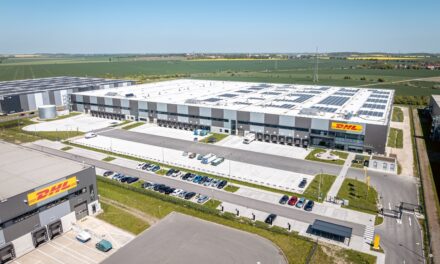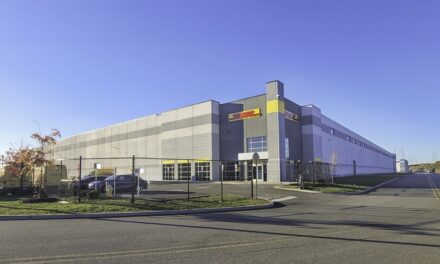
Express and Supply Chain units drive Deutsche Post DHL profit boost
Deutsche Post DHL achieved a 9.2% increase in its profits in the second quarter of the year, thanks to growth seen in its DHL Express and DHL Supply Chain units. The company issued its latest results today showing revenue flat compared to last year’s second quarter, at EUR 13.7bn for the months April to June 2014.
Consolidated net profit was up to EUR 461m in the quarter, driven by strong growth in the DHL express and supply chain divisions, which more than offset the drop in profits in the core postal unit and the DHL Global Forwarding unit, which was impacted by higher investment in its transformation programme.
The second quarter performance meant that in the first half of 2014, Deutsche Post DHL generated a EUR 27.3bn revenue, up 0.9% compared to last year’s first half, with consolidated net profit up 4.7% to EUR 963m.
Frank Appel, the CEO of Deutsche Post DHL, declared the second quarter’s results to be a “successful performance”.
He said: “We have both a high-potential business base and the ability to generate reliable gains in revenues and earnings even under challenging business conditions. With our double-digit increase in EBIT, we demonstrated these two strengths during the past quarter.”
Divisions
Deutsche Post’s domestic mail division, Post-eCommerce-Parcel saw its revenue flat compared to last year’s second quarter, on EUR 3.64bn, but its pre-tax operating profits (EBIT) were down 21% to EUR 188m. The quarter took the division’s first half performance to a 1.8% growth in revenue, to EUR 7.6bn, and a 7.9% year-on-year fall in pre-tax profit, to EUR 585m.
The postal revenue slide came from one less working day in the quarter, and because of last year’s EUR 50bn provision for postage stamps. Earnings would have remained flat compared to last year without these impacts, the company said, adding that it was developing new products and services to address the steadily growing opportunities in e-commerce and parcels.
DHL Express saw its revenue up 2.5% year-on-year in the quarter, to EUR 3.02bn, with pre-tax profit up 17.7% to EUR 332m thanks to strong growth in international time-definite shipments, particularly in Asia, the Middle East and Africa as well as the Americas regions. In the first half, revenue grew 2.4% year-on-year to EUR 5.97bn and pre-tax profit grew 16.1% to EUR 607m.
DHL Supply Chain’s revenue grew 2.3% to EUR 3.62bn in the second quarter, with pre-tax profit up 38% to EUR 109m. In the half, revenue grew 1.6% to EUR 7.12bn and pre-tax profit grew 19.1% to EUR 193m. The division benefited from strong growth in emerging markets and in the automotive, life sciences and healthcare industries.
However, DHL Global Forwarding, Freight, saw its revenue slip 1.9% in the quarter, to EUR 3.64bn, with pre-tax profit down 21.3% to EUR 100m. Over the first half of 2014, revenues fell 2.1% to EUR 7.2bn, with pre-tax profit down 30.4% to EUR 149m.
The DHL divisions overall saw pre-tax profit up 10.7% year-on-year in the quarter, to EUR 540m. In the first half, the divisions grew pre-tax profit 5.4% to EUR 949m.
Outlook
Looking ahead, Deutsche Post said it was expecting a “slight” improvement in the global economy in the rest of this year, and that it would generate pre-tax profits of between EUR 2.9bn and 3.1bn for the year as a whole.
The company is now planning additional investments in 2014 and 2015 in its transformation programme, focussing on the Global Forwarding, Freight division and Supply Chain. This will take a toll on the 2015 pre-tax profit, but the firm said it was raising its guidance on 2016, suggesting that pre-tax profits will come in around EUR 3.4bn to 3.7bn in that year.
“With the ‘Strategy 2020’ announced in April, we laid the foundation to enable us to continue to profitably and sustainably expand our business in future years,” said Appel.
“To reach our goal of defining all aspects of the logistics industry by 2020, we intend to build on our strengths and forge ahead in the key initiatives announced. For this reason, we are investing in the continued optimisation of our divisions and will remain focused not on the Group’s short-term profitability, but on its long-term and sustainable success. The identified measures will make an important contribution to our strategy and will do much to help us become the driving force in the industry.”












